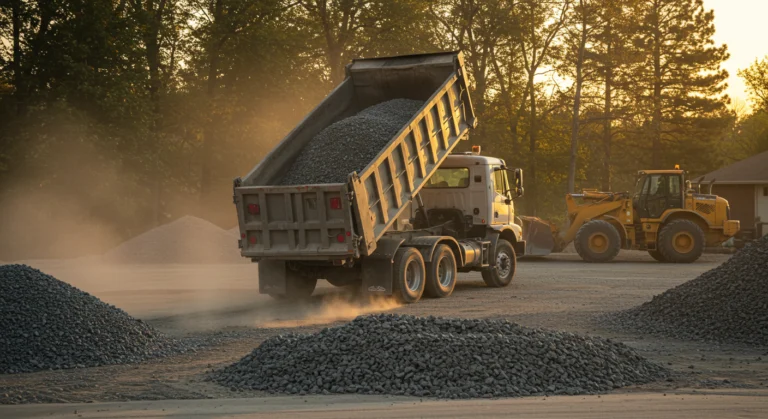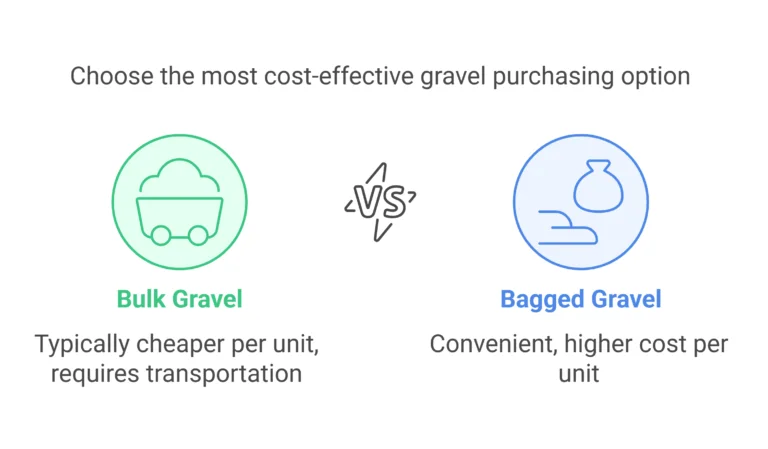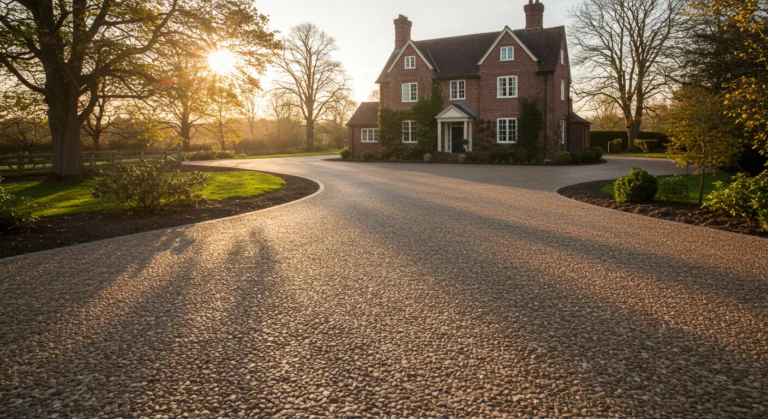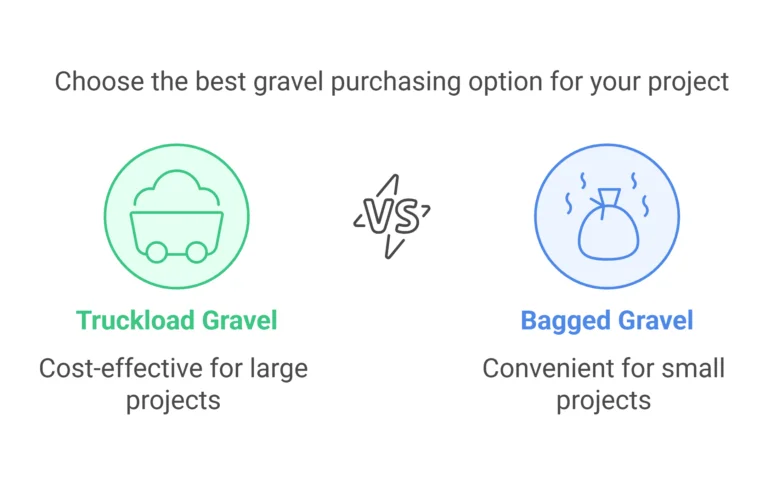Best Gravel for Landscaping complete Guide to Choosing the Perfect Material
Choosing the best gravel for landscaping project can significantly enhance the aesthetic appeal and functionality of your outdoor space. This guide provides a detailed overview of the best gravel options, their applications, and factors to consider when making your selection. We cover everything from the benefits of different types of gravel to practical tips for installation and maintenance. Whether you’re looking to create walkways, flower beds, or garden edging, this article will help you make an informed decision to achieve the perfect landscape.
Introduction to Gravel for Landscaping
Gravel is a versatile and cost-effective material that can transform your garden or outdoor space. It offers a range of benefits, from enhancing aesthetics to providing practical solutions like weed control and drainage. In this guide, we’ll explore why gravel is essential for landscaping projects and the various benefits it brings to your garden.
What are the best stones for landscaping?
When it comes to landscaping, choosing the right stone can make all the difference. Popular options include crushed stone, pea gravel, and river rock. Crushed stone is durable and versatile, making it ideal for pathways and driveways. Pea gravel offers a smooth texture and is perfect for garden beds and walkways. River rock, with its natural beauty, adds a touch of elegance to any landscape.
What is the best gravel for flower beds?
For flower beds, the best gravel should enhance aesthetics and provide practical benefits like weed control and moisture retention. Crushed stone and pea gravel are top choices due to their durability and ability to complement various plant types. According to a study by the University of California, using gravel in flower beds can reduce weed growth by up to 80%, making maintenance easier.
What are the best rocks for garden landscaping?
When selecting rocks for your garden, consider factors like durability, aesthetics, and cost. Popular choices include river rock, decomposed granite, and crushed shells. River rock is known for its natural beauty and low maintenance requirements. Decomposed granite offers a rustic look and is ideal for pathways and garden edging. Crushed shells provide a unique texture and are perfect for coastal gardens.
What is the best rock for flower beds?
Choosing the right rock for your flower beds involves considering factors like color, size, and texture. Small garden rocks like pea gravel and crushed stone are popular choices. Pea gravel is smooth and easy to work with, making it ideal for flower beds. Crushed stone, with its angular edges, provides excellent drainage and weed control. According to a survey by the National Gardening Association, 70% of gardeners prefer using gravel for its low maintenance and aesthetic appeal.
Types of Landscaping Stone
Landscaping stones come in various types, each offering unique benefits. Some common types include:
- Crushed Stone: Durable and versatile, ideal for pathways and driveways.
- Pea Gravel: Smooth and easy to work with, perfect for flower beds and walkways.
- River Rock: Natural beauty, adds elegance to any landscape.
- Decomposed Granite: Rustic look, ideal for pathways and garden edging.
- Crushed Shells: Unique texture, perfect for coastal gardens.
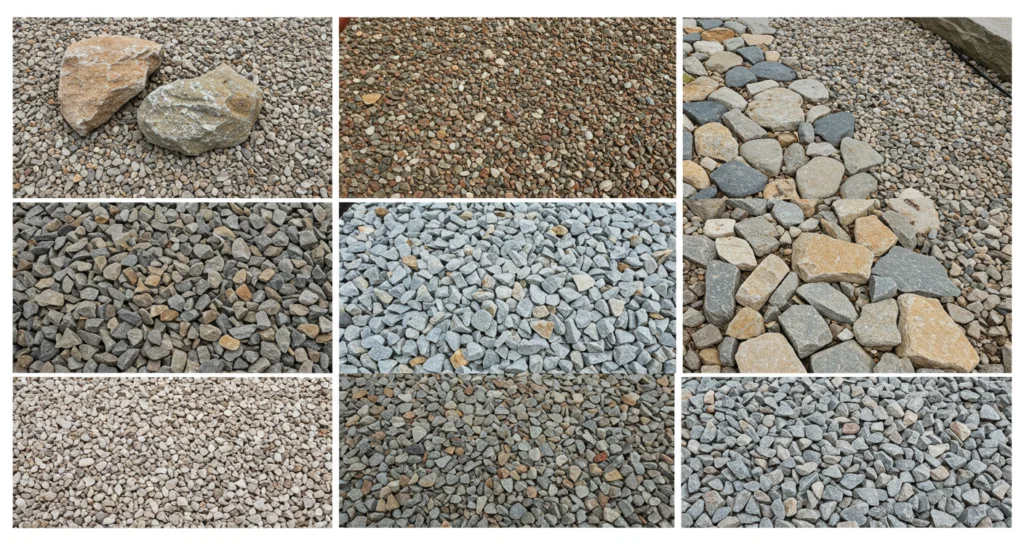
Choosing the Right Gravel for Your Project
Selecting the right gravel involves considering several factors:
- Color Options: Choose a color that complements your garden’s aesthetic.
- Size and Texture: Ensure the gravel size and texture suit your project’s needs.
- Durability and Weather Resistance: Select gravel that can withstand your local climate.
- Budget and Cost: Consider your budget and look for cost-effective options.
According to a report by the Environmental Protection Agency (EPA), choosing durable and weather-resistant gravel can reduce maintenance costs by up to 30% over the gravel’s lifespan.
Applications of Gravel in Landscaping
Gravel is versatile and can be used in various applications:
- Flower Beds: Enhances aesthetics and provides weed control.
- Walkways: Creates durable and low-maintenance paths.
- Garden Edging: Defines boundaries and adds a polished look.
- Patios: Creates functional outdoor spaces with good drainage.
A study by the American Society of Landscape Architects found that gravel walkways can increase property value by up to 15% due to their aesthetic appeal and low maintenance requirements.
What are some tips for installing gravel in my garden?
Installing gravel involves several steps:
- Preparing the Ground: Clear and level the area, adding a base layer for stability.
- Laying the Gravel: Use proper techniques to ensure even distribution.
- Maintenance and Care: Regular cleaning and replenishing as needed.
Proper installation can significantly enhance the longevity and functionality of your gravel. According to a study by the University of Illinois Extension, properly installed gravel can last up to 10 years with minimal maintenance.
How do I choose the best gravel for my project?
To choose the best gravel, consider factors like color, size, texture, durability, and cost. Research different types and consult with a landscaping expert if needed.
What is the most durable type of gravel?
Crushed stone is often considered the most durable due to its angular edges and ability to lock together, providing a stable surface.
How much gravel do I need?
Calculate the volume required by measuring the area and depth. A general rule of thumb is to use 2 inches of gravel for walkways and flower beds.
Can I use gravel for a driveway?
Yes, crushed stone and decomposed granite are popular choices for driveways due to their durability and ability to handle heavy loads.
What color landscape rock works best with a white house?
Light-colored gravel like white or beige can complement a white house, enhancing the overall aesthetic appeal.
Conclusion
Choosing the right gravel involves considering factors like color, size, texture, durability, and cost. Popular options include crushed stone, pea gravel, and river rock. Proper installation and maintenance can significantly enhance the longevity and functionality of your gravel. By following the tips and guidelines in this guide, you can achieve a beautiful and functional landscape.


